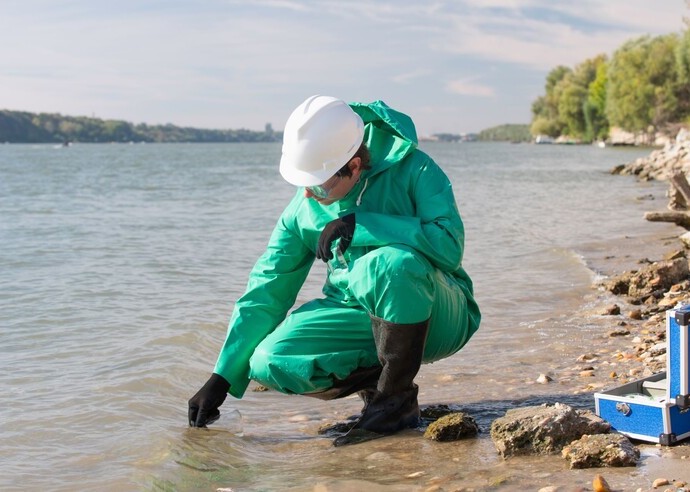Knowledge in environmental legislation
Environmental protection inspectors must be familiar with environmental legislation and other relative laws in order to enforce pollution control and prosecute offenders.


Physical Abilities
Physical abilities
Importance:3 (Max:5)
Skill is basically required
Technology Skills
Technology skills
Importance:3 (Max:5)
Skill is basically required
Cognitive Abilities
Cognitive abilities
Importance:3 (Max:5)
Skill is basically required
Comprehension And Expression
Comprehension and expression skills
Importance:3 (Max:5)
Skill is basically required
Social Skills
Social skills
Importance:4 (Max:5)
Skill is frequently required
Organisation And Execution Skills
Organisation and execution skills
Importance:4 (Max:5)
Skill is frequently required
Problem Solving Skills
Problem solving skills
Importance:4 (Max:5)
Skill is frequently required
Management Skills
Management skills
Importance:3 (Max:5)
Skill is basically required
Environmental protection inspectors must be familiar with environmental legislation and other relative laws in order to enforce pollution control and prosecute offenders.
Academic qualification
A Diploma or Higher Certificate in Biology, Medical Laboratory Science, Mechanical, Electrical, Electronic or Civil Engineering, Chemical Technology, Computer Science, Water Pollution Control, Waste Management, Environmental Studies or a relevant science or engineering subject from a Hong Kong university/Hong Kong polytechnic, Hong Kong Institute of Vocational Education or a Hong Kong technical college/Hong Kong technical institute, or equivalent.
Professional qualification
Associate Membership of the Hong Kong Institution of Engineers in a relevant discipline admitted on or after 5 December 1975
Other specific requirements
Grade E or above in Chinese Language and English Language (Syllabus B) in Hong Kong Certificate of Education Examination, or equivalent
Monthly Salary Master Pay Scale Point 8-21
Monthly Salary Master Pay Scale Point 22-28
Monthly Salary Master Pay Scale Point 29-33
*For more details on Civil Service Pay Scales, please visit website of the Civil Service Bureau.
http://www.csb.gov.hk/english/admin/pay/952.html
Degree or above
Higher Diploma
Professional Diploma/ Certificate
